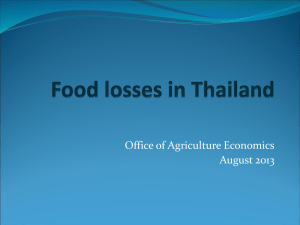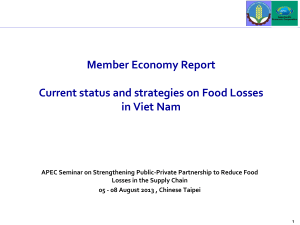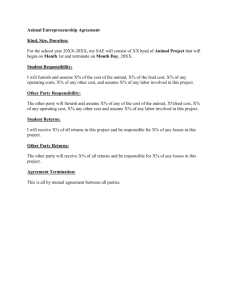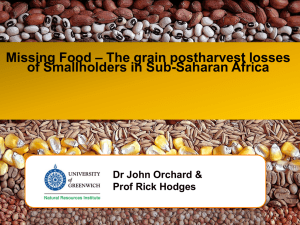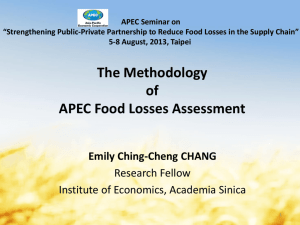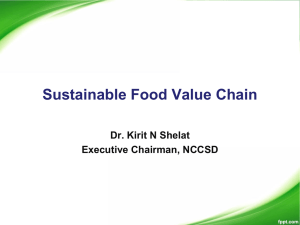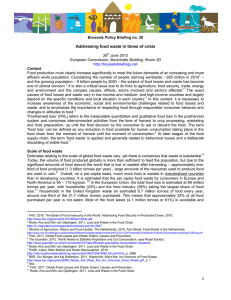Catalogue Record
advertisement
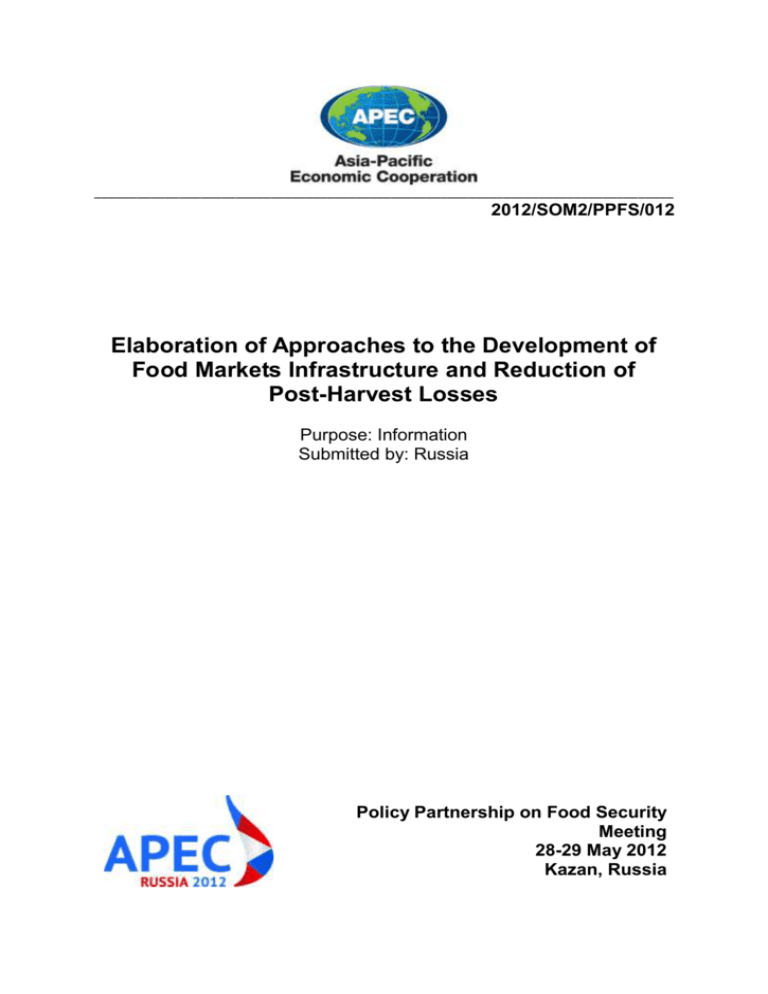
__________________________________________________________________________________ 2012/SOM2/PPFS/012 Elaboration of Approaches to the Development of Food Markets Infrastructure and Reduction of Post-Harvest Losses Purpose: Information Submitted by: Russia Policy Partnership on Food Security Meeting 28-29 May 2012 Kazan, Russia Elaboration of Approaches to the Development of Food Markets Infrastructure and Reduction of Post-Harvest Losses Introduction The development of food markets infrastructure and improvement of their logistics play an important role in the overall development and mutual integration of markets, creating the basis for their more efficient functioning and further expansion. Investigation of production chains, transport and storage to reduce post-harvest losses is an area of potential APEC value-added, given the importance of regional approaches for technical assistance. Minimizing post-harvest losses improves the final result of the activities undertaken during these processes. Background The Declaration on APEC Food Security, adopted in Niigata (Japan) in 2010, recognizes the need to accelerate the processes of developing and expanding markets infrastructure to strengthen food supply capacity in the region. According to FAO estimates, a large quantity of food produced in developing economies is lost after harvesting, which is one of the biggest reasons for increased food shortages. The FAO also stresses that food losses could be significantly reduced owing to targeted investment and training. The causes of post-harvest losses, which according to some estimates range, on average, from 10% to 50%, are various. Among them are natural climatic conditions in any given season, the presence of noxious microorganisms, the level of technical and technological equipment, physical depreciation and obsolescence of equipment and the human factor. Food losses occur at every stage of the process: during harvesting, transportation to storage facilities, unloading and dispatching for storage, storage itself, taking out of storage, transportation to production sites and processing. The quantity of losses at any stage depends on the above-mentioned factors and varies in each specific case. Thus, encouraging the development of market infrastructure for food and its logistics would significantly reduce losses along the whole food supply chain (production, storage, transportation and distribution). Proposals The Russian Federation proposes: to consider developing measures for assessing post-harvest losses in the APEC member economies’ agriculture sector to acquire comparable data in order to analyse this problem in the APEC region and elaborate ways to resolve it; to share the results of Niigata Food Security Action Plan including the following, and also to review the respective activities, and try to identify new challenges: workshop, training, and a joint research project to share approaches and tools for postharvest handling (No.13 ); to identify actions economies can undertake to encourage the development of food market infrastructure, including improvement of their logistical support in order to reduce the postharvest losses; to develop measures to attract targeted investments into food markets infrastructure and their logistical support; to elaborate approaches to improving the operation of food supply chains including through development of modern supply chains - value chains.


